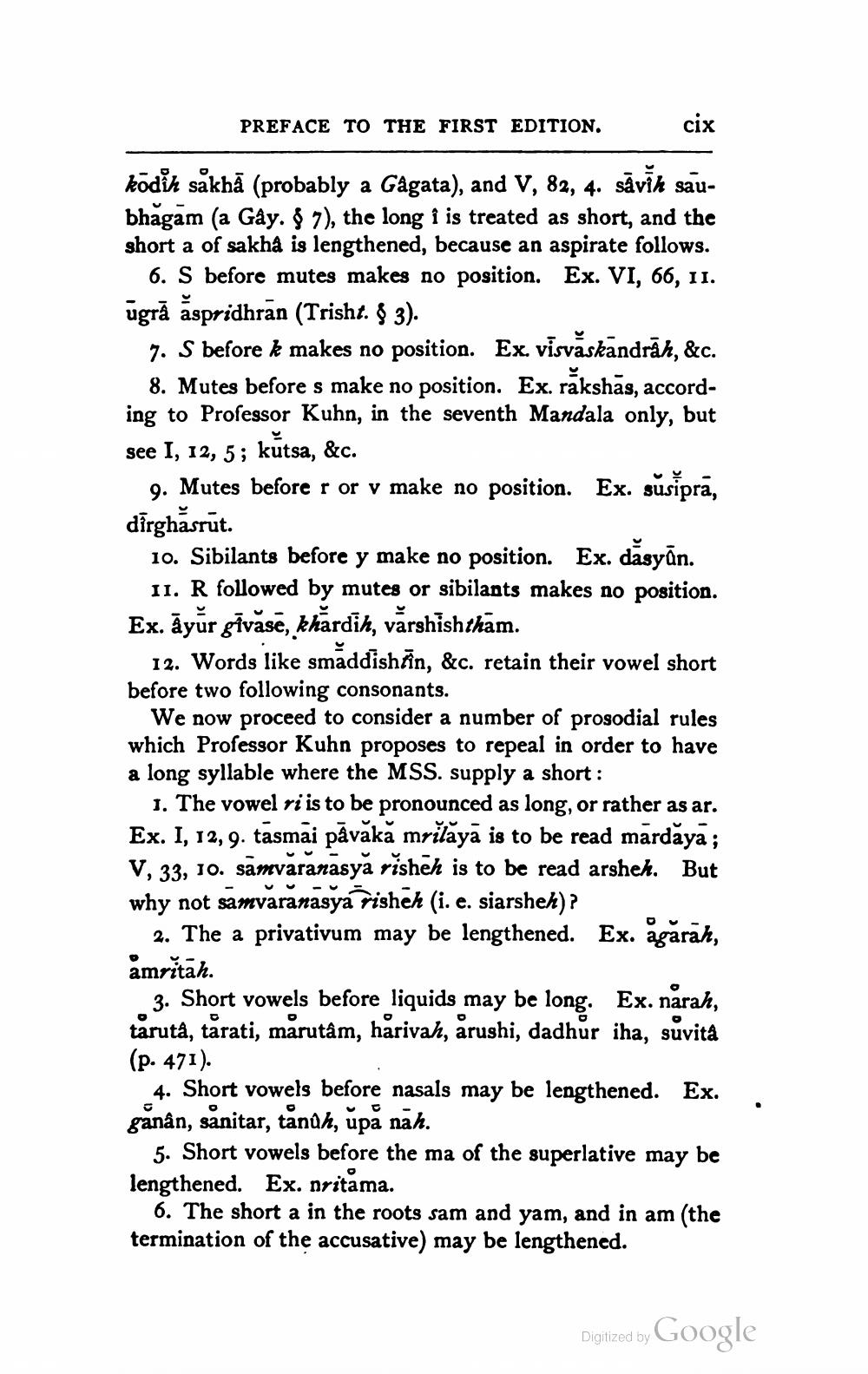________________
PREFACE TO THE FIRST EDITION.
cix
kodih sakhā (probably a Gågata), and V, 82, 4. sāvih saubhagam (a Gây. $ 7), the long i is treated as short, and the short a of sakha is lengthened, because an aspirate follows.
6. S before mutes makes no position. Ex. VI, 66, 11. ūgrā aspridhran (Trisht. $ 3).
7. S before k makes no position. Ex. visvāskāndrāh, &c.
8. Mutes before s make no position. Ex. rakshās, according to Professor Kuhn, in the seventh Mandala only, but see I, 12, 5; kūtsa, &c.
9. Mutes before r or v make no position. Ex. susipra, dirghăsrut.
10. Sibilants before y make no position. Ex. dăsyān.
11. R followed by mutes or sibilants makes no position. Ex. āyŭr gīvase, khărdik, vărshishthām.
12. Words like smaddishăn, &c. retain their vowel short before two following consonants.
We now proceed to consider a number of prosodial rules which Professor Kuhn proposes to repeal in order to have a long syllable where the MSS. supply a short:
1. The vowel ri is to be pronounced as long, or rather as ar. Ex. I, 12, 9. tasmai pāvaka mrilayā is to be read mardaya; V, 33, 10. samvaranasya rishēh is to be read arsheh. But why not samvaranasya risheh (i. e. siarsheh)?
2. The a privativum may be lengthened. Ex. ägärāh, amritah.
3. Short vowels before liquids may be long. Ex. narah, tåruta, tårati, marutâm, hårivah, årushi, dadhür iha, súvita (p. 471).
4. Short vowels before nasals may be lengthened. Ex. gănân, sanitar, tanah, úpå näh.
5. Short vowels before the ma of the superlative may be lengthened. Ex. nritama.
6. The short a in the roots sam and yam, and in am (the termination of the accusative) may be lengthened.
Digized by Google




